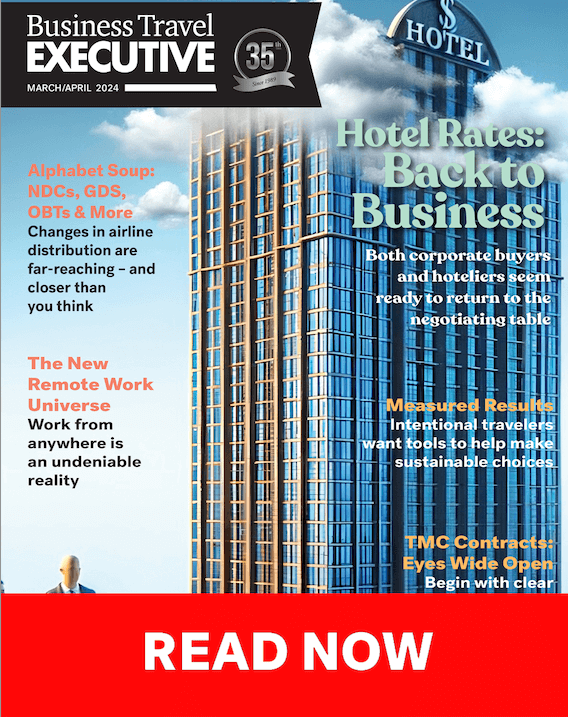“Relax and enjoy this fascinating city,” advises Chris Heffelfinger, regional manager for Middle East/North Africa for iJet Intelligent Risk Systems.
“It may take some getting used to being a passenger at night on Cairo’s roads,’ he concedes. “Drivers often don’t use headlights except as a means of signaling other drivers that they are maneuvering or to make them aware of their presence.”
And there are sensible precautions to be taken: “When traveling between terminals at Cairo airport, try to stick to shuttle buses or taxis lined up at queues. Avoid any driver who approaches you within the terminal or tells you that only major foreign currencies are accepted for payment. The currency is the Egyptian pound and it is good for all transactions. Ensure that this is understood before getting into a taxi at the airport.

“For travel in the rest of the city, find a taxi through your hotel,” he continues. “A trusted taxi driver may become a resource that you can count on for the duration of the visit, as well as a great guide.”
As far as traveling through neighborhoods of unknown safety, Heffelfinger, is reassuring: “Cairene society is a truly mixed one, like the United States. There are traditional conservative elements of society, neo-Islamists, secularists, pro-Western business people, human rights activists, etc. Keep an open mind. Since the city is vast, most business travelers will be using taxis to get around and it is highly improbable that they would find themselves off the beaten path.”
However, it could be useful to have a feeling for the various neighborhoods: Zamalek, an island in the middle of the Nile, is an up-market area containing stately villas from the time of British rule. The villas are now overshadowed by high-rises and the island is home to foreigner-friendly restaurants and businesses.
Mohandiseen — the name literally means “engineers” — is a sadly unrealized residential area planned during Nasser’s regime.
Garden City is the former British administrative center and several embassies, including the British and US, are still here. The area suffers from poor planning and upkeep.
Downtown contains many grand old buildings, that have fallen into disrepair.
Islamic Cairo is the oldest part of the city, but not necessarily the most Islamic. Much of this area remains a densely packed collection of twisting alleys and narrow streets that you can walk through to experience old Cairo.
TIME — GMT+2. DST ended on October 1. In 2011, it begin will on April 29 and end on September 29.
ENTRY Requirements — A passport and visa are required. Tourists can obtain a renewable thirty-day tourist visa on arrival at an Egyptian airport for a $15 fee, payable in U.S. dollars.
CRINME & SAFETY — Egypt’s crime rate is low. While incidents of violence are rare, purse-snatching, pick-pocketing and petty theft do occur. Unescorted women are vulnerable to sexual harassment and verbal abuse.
EMERGENCY NUMBERS — US Embassy: (20) 2-2797-2301. Canadian Embassy: (20) 2-2791-8700 Police: 122. Ambulance: 177.
CUSTOMS — Tourists’ electronic equipment is annotated in their passports; those items must be shown upon exiting Egypt. Normal amounts of electronics such as a computer, a camera, etc. are allowed in for personal use.
TAXIS— You can hail a cab from any corner of any street. The meters don’t work so agree on the price before you get into the cab. Single men sit in the front; single women, in the back. A reasonable taxi fare from the airport to the center of town and vice versa is around 25 Egyptian pounds.
CURRENCY — The official currency is the Egyptian pound, which equals 100 piasters. There are various denominations of this paper money, as well as piaster coins. Recent changes in Egyptian regulations require travelers to pay hotel bills in hard currency such as dollars, euros or with foreign credit cards. Local restaurants or shops allow payments in Egyptian pounds.
PUBLIC TRANSIT — Cairo boasts the only metro system in Africa and it’s a pleasure to ride. The first carriage is for women only. Buy your tickets at the station and hold on to them until you exit at your final destination.
PHOTOGRAPHY — There are restrictions on photographing military personnel and sites, bridges, and canals, including the Suez Canal. Authorities may broadly interpret this to include other potentially sensitive structures, including embassies, public buildings with international associations and some religious edifices. Refrain from taking photographs that include uniformed personnel.








